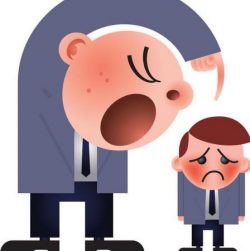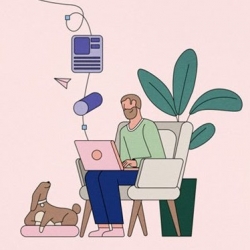April 19, 2021
Pressure and weak leadership form the recipe for workplace bullying
 Employees experience more bullying on days with higher work pressure and passive avoidant leadership, finds new research from BI Norwegian Business School and the University of Bergen and published in The European Management Journal. Professor Olav Kjellevold Olsen and colleagues studied how work pressure is related to daily experiences of workplace bullying related acts, as well as the relationship with transformational or laissez-faire leadership. Transformational leadership involves paying more attention to employees’ needs for achievement and providing social support. Laissez-faire leadership involves a more passive and destructive approach leaving followers on their own in situations in need of leadership. (more…)
Employees experience more bullying on days with higher work pressure and passive avoidant leadership, finds new research from BI Norwegian Business School and the University of Bergen and published in The European Management Journal. Professor Olav Kjellevold Olsen and colleagues studied how work pressure is related to daily experiences of workplace bullying related acts, as well as the relationship with transformational or laissez-faire leadership. Transformational leadership involves paying more attention to employees’ needs for achievement and providing social support. Laissez-faire leadership involves a more passive and destructive approach leaving followers on their own in situations in need of leadership. (more…)







 Research from
Research from 
 Many of us are looking forward to a summer of relative freedom, with road-mapped milestones that will grant us more opportunities to see our friends and family. But we’ll be carrying the effects of months of isolation into those meetings, including a sense that our social skills will need dusting off, and our wits will need sharpening. The mental effects of lockdown have been profound. Social isolation has been shown to cause people’s
Many of us are looking forward to a summer of relative freedom, with road-mapped milestones that will grant us more opportunities to see our friends and family. But we’ll be carrying the effects of months of isolation into those meetings, including a sense that our social skills will need dusting off, and our wits will need sharpening. The mental effects of lockdown have been profound. Social isolation has been shown to cause people’s 
 More than six in ten UK managers have experienced burnout at work because of the COVID-19 pandemic, with a fifth considering quitting their job as a result, according to new research from
More than six in ten UK managers have experienced burnout at work because of the COVID-19 pandemic, with a fifth considering quitting their job as a result, according to new research from 
 The UK COVID-19 vaccination
The UK COVID-19 vaccination 
 Human resources research and advisory firm
Human resources research and advisory firm 
 One of the most significant consequences of the 2008 economic crash was a remarkable shift
One of the most significant consequences of the 2008 economic crash was a remarkable shift 
 We are scarcely nine months into the Covid-19 pandemic, after a long spring and harsh summer. Social distancing has led to remote working becoming widespread, leading to doubts regarding the office’s long-term relevance. However, Jones Lang LaSalle (JLL) argues in a recent
We are scarcely nine months into the Covid-19 pandemic, after a long spring and harsh summer. Social distancing has led to remote working becoming widespread, leading to doubts regarding the office’s long-term relevance. However, Jones Lang LaSalle (JLL) argues in a recent 


 Years of pathologising offices should have prepared us for the patholigisation of virtual spaces. It seems like months since anybody has come out with that tired old rant about open plan. Certain vociferous and obsessive
Years of pathologising offices should have prepared us for the patholigisation of virtual spaces. It seems like months since anybody has come out with that tired old rant about open plan. Certain vociferous and obsessive 
 Originally published in December 2014. Homeworking seems to have become a bit of a hot topic this year, but one sentence published on the
Originally published in December 2014. Homeworking seems to have become a bit of a hot topic this year, but one sentence published on the 








March 22, 2021
The era of work personalisation is upon us
by Gary Chandler • Comment, Workplace design